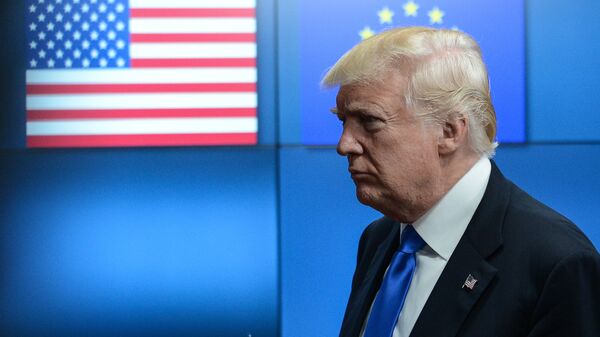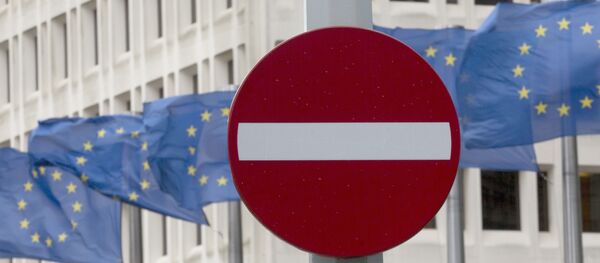“Europe should be grateful to President Trump, because thanks to him we have got rid of old illusions,” European Council President Donald Tusk said at the start of an EU-Western Balkans summit in Sofia on Thursday.
Later in the day, European Commission President Jean-Claude Juncker said that “As the European Commission we have the duty to protect European companies. We now need to act and this is why we are launching the process to activate the ‘blocking statute’ from 1996.”
When meeting with a group of top executives of companies working in Iran, French Finance Minister Bruno Le Maire proposed “three answers” to the US withdrawal from the 2015 nuclear deal with Tehran, and said he hoped that the European Commission would make “concrete decisions.”
And, lastly, to set up a mechanism to better control, single out and block risky investments.
In an interview with Sputnik France, Emmanuel Dupuy, the director of the Institute for European Perspective and Security (IPSE) said that the latter measure was aimed at making it possible for Europeans to use pressure against US companies.
“The mechanism created by the European Commission with regard to Russia could also be used when dealing with other countries. As you can see, France is trying to stick to its position and create its own instruments,” Dupuy said.
He added that Paris is also trying to face up to the US Committee on Foreign Investment in the United States (CFIUS) and the Office of Foreign Assets Control (OFAC), which oversee the implementation of various embargoes unilaterally imposed by Washington.
The US Treasury Department has given European businesses with activities in Iran 90-day or 180-day wind-down periods to dismantle their operations or face big fines and be banned from working in the US market or using the dollar.
READ MORE: Enough is Enough: EU to Block US Sanctions on Iran to Protect European Firms
Emmanuel Dupuy said that US economic interests in Iran are dwarfed by what Europeans have in the Islamic Republic. For all the talk about Boeing’s big-time contracts with Tehran, the trade turnover between the two countries is 100 times smaller compared with that between Iran and the EU, which last year stood at an impressive $21 billion.
While Iran’s trade relations with the EU have been looking up since the sanctions were lifted in 2016, its trade volumes with the US have even been going down.
“The American companies gained nothing from the nuclear deal with Iran,” Emmanuel Dupuy said, putting the volume of US-Iranian trade at a very modest $230 million.
On May 8, President Donald Trump announced his decision to withdraw the United States from the Iran nuclear deal, also known as the Joint Comprehensive Plan of Action (JCPOA).
He also promised to reinstate the sanctions against Iran that were lifted as a result of the agreement, signed by Tehran and the five permanent members of the UN Security Council – the US, France, Britain, Russia and China – plus Germany on July 14, 2015 and which imposes strict restrictions on Iran's nuclear program in in exchange for the loosening of economic sanctions.



